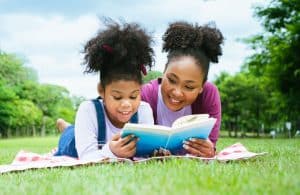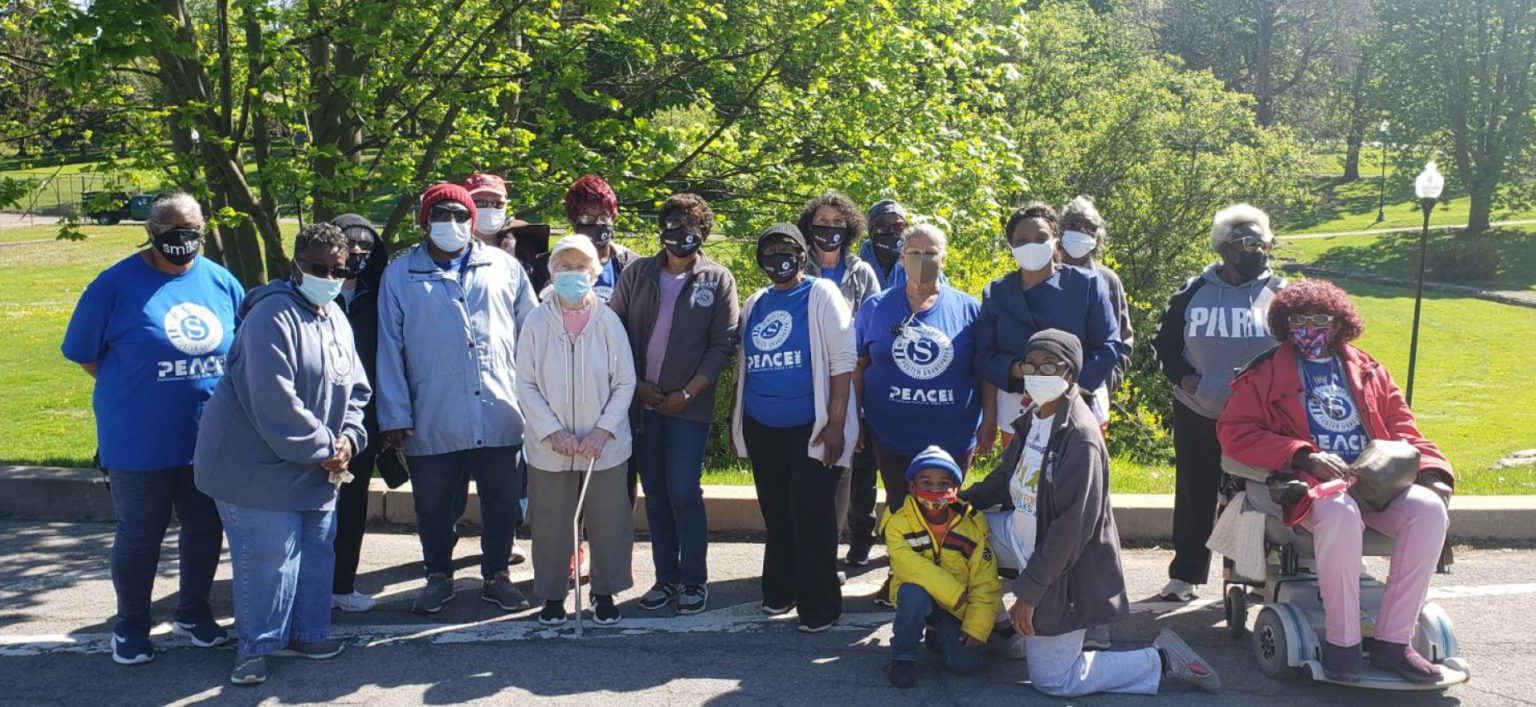Since 1972, members of Peace Inc.’s Foster Grandparent Program have been helping children overcome social, emotional and academic obstacles.
Family Times recently talked to Beth O’Hara, director of senior services for Peace Inc., about the program’s roots and its impact in the classroom – and beyond.
This interview was edited for length and clarity.
1. How did the Foster Grandparent Program first begin? How has it grown and expanded since then?
The Foster Grandparent Program is a federally funded program out of AmeriCorps. Peace Inc. received the first grant for the program in 1972. Next year will be our 50th The program started very small with 15 foster grandparents that were working specifically with children at the old Syracuse developmental center, so children that had developmental disabilities. But then they found out how successful it was, and they expanded into any type of facility or institution that we could partner with that had children with special needs. Today, special needs to us means social, emotional, and academic obstacles.
Nowadays, we are partnering with the Syracuse City School District, with Head Start and Early Head Start, and with some daycare centers. Our foster grandparents, as volunteers, serve a minimum of 15 hours per week. They’re assigned to these sites, they’re assigned to a classroom, and they work under close supervision of the professional teachers and staff at those sites. They’re assigned to work with children that are struggling. They’re present for every child in the classroom, and they can share their skills and abilities and love and guidance with all the children, but they generally target four or five kids that really could use a little more attention. They’re another set of eyes and ears in the classroom to help those children that need extra love and encouragement.
How many grandparents are involved today? How many schools and other sites do you visit each year?
Currently, we have 93 foster grandparents. We partner with 15 elementary schools, about five Head Start centers, and a couple daycare centers.
2.What is the goal or the mission of this program?
What’s great about our program is that it has two great missions and two great outcomes. Our mission is to engage senior citizens living on fixed incomes to get them out of the house and giving back to the community. As volunteers, they’re getting healthy, they’re physically and mentally active. We’re improving their life, while they, in turn, are improving the lives of the children they work with. Two populations that need each other, basically. We’re building a bridge between the older and younger generation, and they’re both benefitting from it.
3. What type of activities do you do?
For the little kids in Head Start who may have some separation anxiety, grandma is there to help them ease into the routine of the classroom every morning. It could be as simple as during story time or circle time, sitting next to the child and trying to encourage them to pay attention and keep them focused on the task at hand. Just providing a lot of interactive encouragement. When we get to the older students, in kindergarten and first and second grade, the foster grandparents may again be sitting next to a child keeping them on task, keeping them focused on the lesson. It might be some basic tutoring. A lot of mentoring just to keep those children on task and involved in the educational process.
4. What has been the reaction from the grandparents – and from the students?
We do a yearly participant survey with the foster grandparents and our statistics always come back that it is improving their lives, expanding their social network, and improving their mental health. They feel like they’re an active participant in their community. They feel they are improving the lives of the children.
We also get measurement back from the teachers and the staff that have the foster grandparents in their classrooms, and what we look at with that is: Are the students behaving better? Are their grades improving? Is their attendance improving? Are they participating in the learning environment? All of our statistics and the research we do shows that it’s impacting the children; it’s making them better students.
5. What do you see in the future for the Foster Grandparent Program?
We pulled our foster grandparents out of the classroom when everything shut down in March of 2020, and we’re hopefully getting them back into all of the classrooms this fall. They’re anxious and excited to get back. They’ve missed it. They miss the interaction with the children. They miss the interaction with the other adults at their site…We’re excited to get back to our old routine.
And we spent some time too talking about how classrooms aren’t going to look the same as they did when they left in March of 2020. There are going to be some issues that need to be addressed, and their role will be an important one just to help everyone return to a normal routine in a classroom. There are going to be some children who have social and emotional issues having not been in the formal educational environment. We spent a lot of time talking with them about what they’re going to see and how they can be of assistance to children that are struggling.
6. Is there anything else you would like to add?
Our foster grandparents, if they’re income eligible, receive a stipend. It’s a very small, non-taxable stipend. They are not getting rich on it, and they are not volunteering to make money. It just offsets some of their expenses they may incur while volunteering: gas, travel, things like that. It’s just a little added bonus for the commitment they’re making to the children of our community.
In the next year, I just see being able to re-energize our program and getting back to the basics of ‘we have this volunteer, and they’re here just to serve the children in your classroom and improve their lives.’
For more information about the Foster Grandparent Program, visit peace-caa.org.





